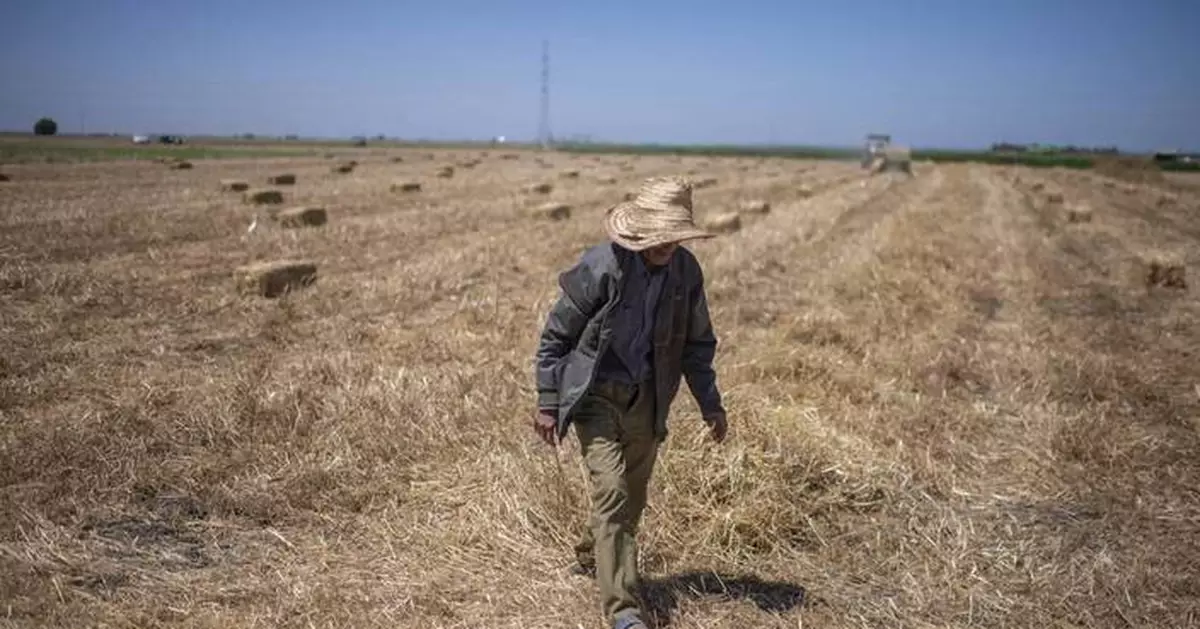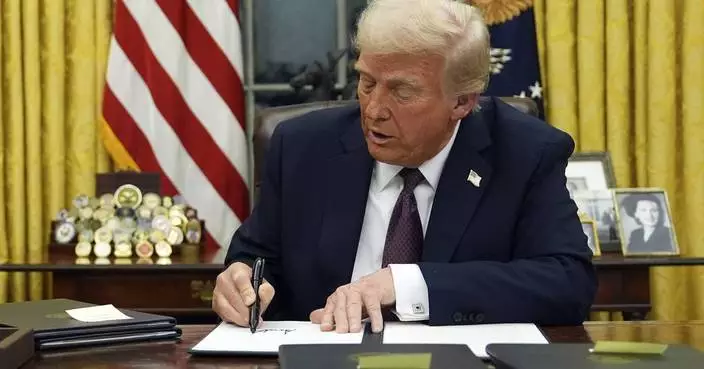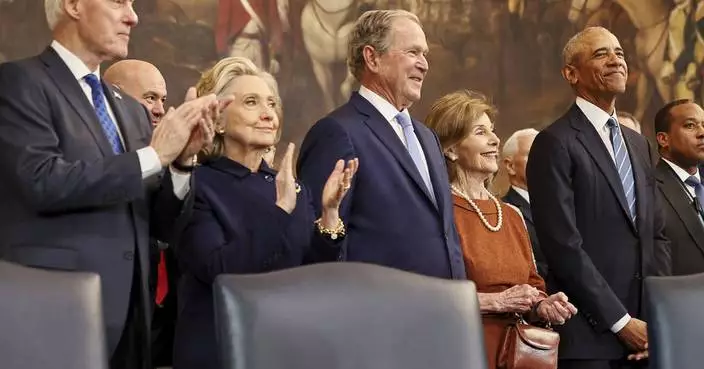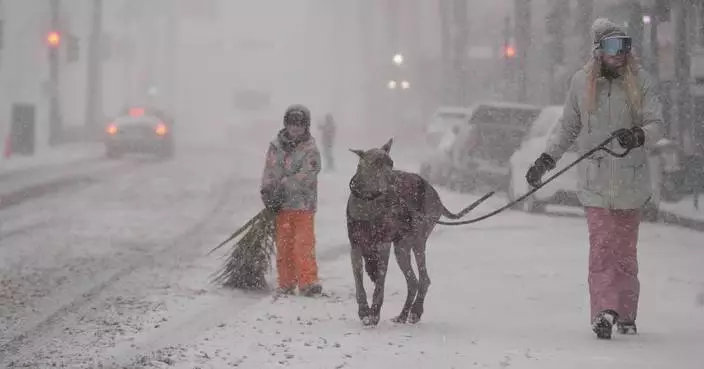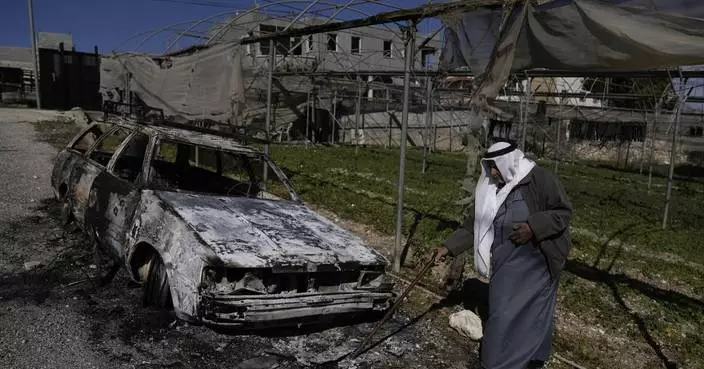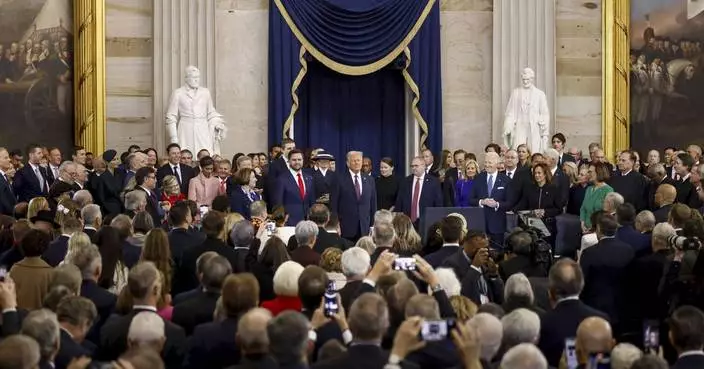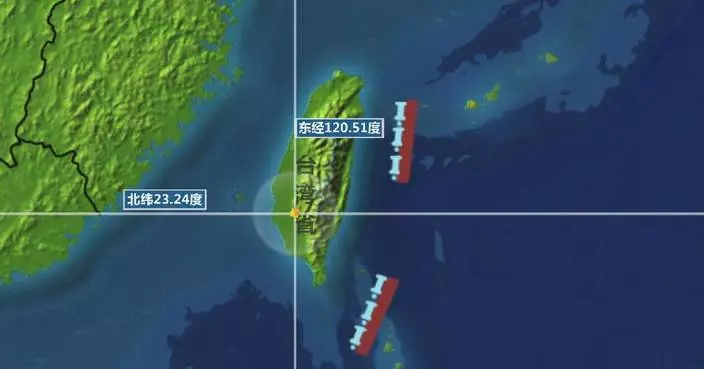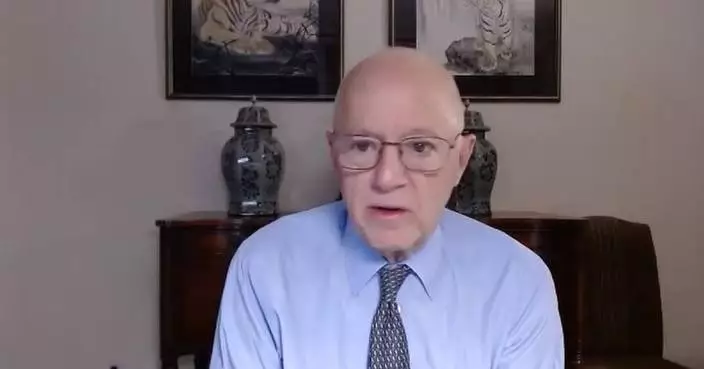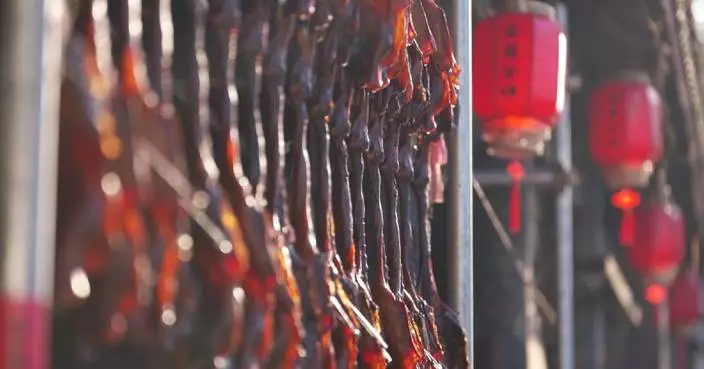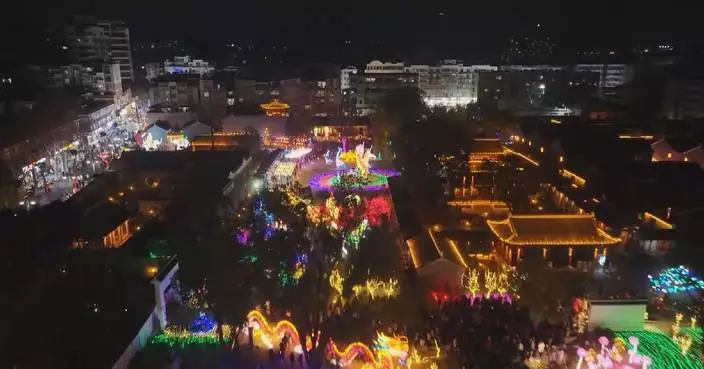KENITRA, Morocco (AP) — Golden fields of wheat no longer produce the bounty they once did in Morocco. A six-year drought has imperiled the country's entire agriculture sector, including farmers who grow cereals and grains used to feed humans and livestock.
The North African nation projects this year's harvest will be smaller than last year in both volume and acreage, putting farmers out of work and requiring more imports and government subsidies to prevent the price of staples like flour from rising for everyday consumers.
Click to Gallery
A farmer works in a wheat field on the outskirts of Kenitra, Morocco, Friday, June 21, 2024. (AP Photo)
Harvested wheat from a farm on the outskirts of Kenitra, Morocco, Friday, June 21, 2024. (AP Photo)
Abdelkrim Naaman, the chairman of the NGO Nalsya, right, advises a farmer on seeding, irrigation and drought mitigation, on a farm on the outskirts of Kenitra, Morocco, Friday, June 21, 2024. (AP Photo)
A farmer works in a wheat field on the outskirts of Kenitra, Morocco, Friday, June 21, 2024. (AP Photo)
Wheat grows in a wheat farm on the outskirts of Kenitra, Morocco, Friday, June 21, 2024. (AP Photo)
Farmers work on a wheat farm on the outskirts of Kenitra, Morocco, Friday, June 21, 2024. (AP Photo)
A farmer works in a wheat field on the outskirts of Kenitra, Morocco, Friday, June 21, 2024. Golden fields of wheat no longer produce the bounty they once did in Morocco. A six-year drought has imperiled the country's entire agriculture sector, including farmers who grow cereals and grains used to feed humans and animals. (AP Photo)
“In the past, we used to have a bounty — a lot of wheat. But during the last seven or eight years, the harvest has been very low because of the drought," said Al Housni Belhoussni, a small-scale farmer who has long tilled fields outside of the city of Kenitra.
Belhoussni's plight is familiar to grain farmers throughout the world confronting a hotter and drier future. Climate change is imperiling the food supply and, in regions like North Africa, shrinking the annual yields of cereals that dominate diets around the world — wheat, rice, maize and barley.
The region is one of the most vulnerable in the world to climate change. Delays to annual rains and inconsistent weather patterns have pushed the growing season later in the year and made planning difficult for farmers.
In Morocco, where cereals account for most of the farmed land and agriculture employs the majority of workers in rural regions, the drought is wreaking havoc and touching off major changes that will transform the makeup of the economy. It has forced some to leave their fields fallow. It has also made the areas they do elect to cultivate less productive, producing far fewer sacks of wheat to sell than they once did.
In response, the government has announced restrictions on water use in urban areas — including on public baths and car washes — and in rural ones, where water going to farms has been rationed.
“The late rains during the autumn season affected the agriculture campaign. This year, only the spring rains, especially during the month of March, managed to rescue the crops,” said Abdelkrim Naaman, the chairman of Nalsya. The organization has advised farmers on seeding, irrigation and drought mitigation as less rain falls and less water flows through Morocco's rivers.
The Agriculture Ministry estimates that this year's wheat harvest will yield roughly 3.4 million tons (3.1 billion kilograms), far less than last year's 6.1 million tons (5.5 billion kilograms) — a yield that was still considered low. The amount of land seeded has dramatically shrunk as well, from 14,170 square miles (36,700 square kilometers) to 9,540 square miles (24,700 square kilometers).
Such a drop constitutes a crisis, said Driss Aissaoui, an analyst and former member of the Moroccan Ministry for Agriculture.
"When we say crisis, this means that you have to import more," he said. “We are in a country where drought has become a structural issue."
Leaning more on imports means the government will have to continue subsidizing prices to ensure households and livestock farmers can afford dietary staples for their families and flocks, said Rachid Benali, the chairman of the farming lobby COMADER.
The country imported nearly 2.5 million tons of common wheat between January and June. However, such a solution may have an expiration date, particularly because Morocco's primary source of wheat, France, is facing shrinking harvests as well.
The United Nations' Food and Agriculture Organization ranked Morocco as the world's sixth-largest wheat importer this year, between Turkey and Bangladesh, which both have much bigger populations.
“Morocco has known droughts like this and in some cases known droughts that las longer than 10 years. But the problem, this time especially, is climate change,” Benali said.
__
Hassan Alaoui contributed reporting from Rabat and Kenitra, Morocco.
__
This story has been updated to clarify that the annual yields of the main cereal crops are falling in North Africa, but not globally.
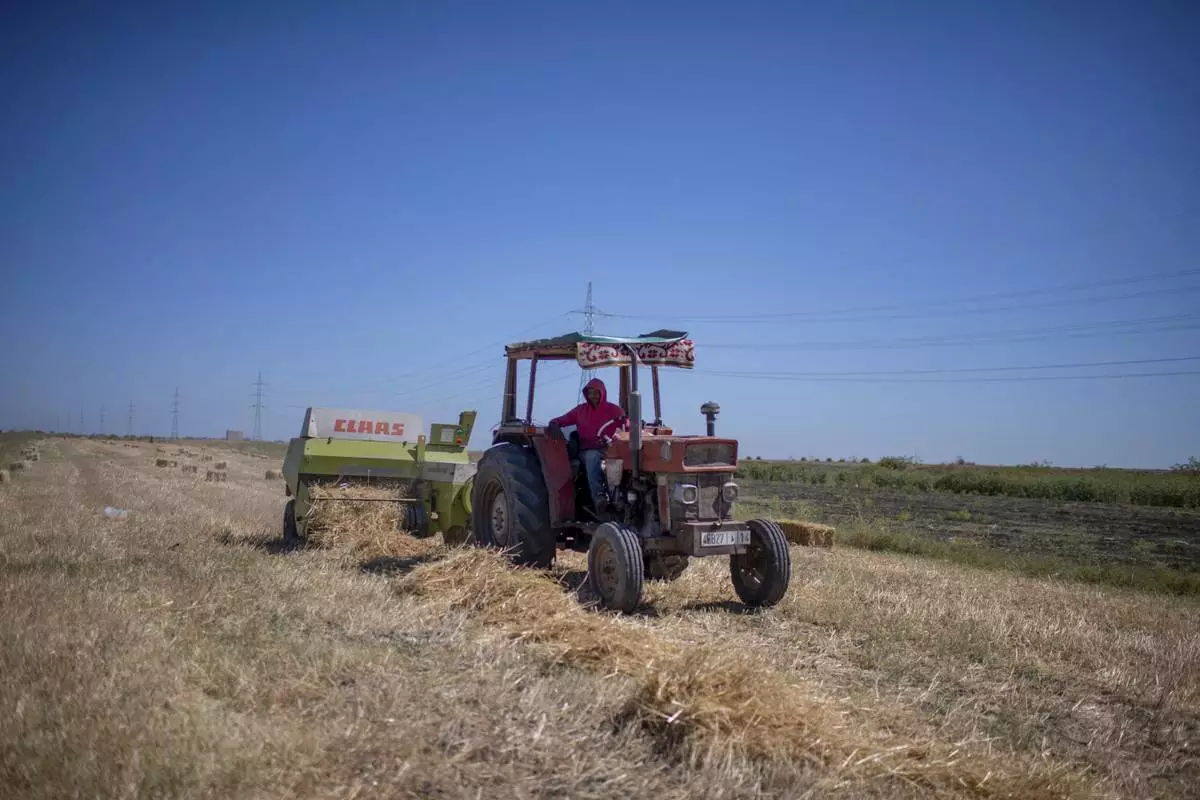
A farmer works in a wheat field on the outskirts of Kenitra, Morocco, Friday, June 21, 2024. (AP Photo)
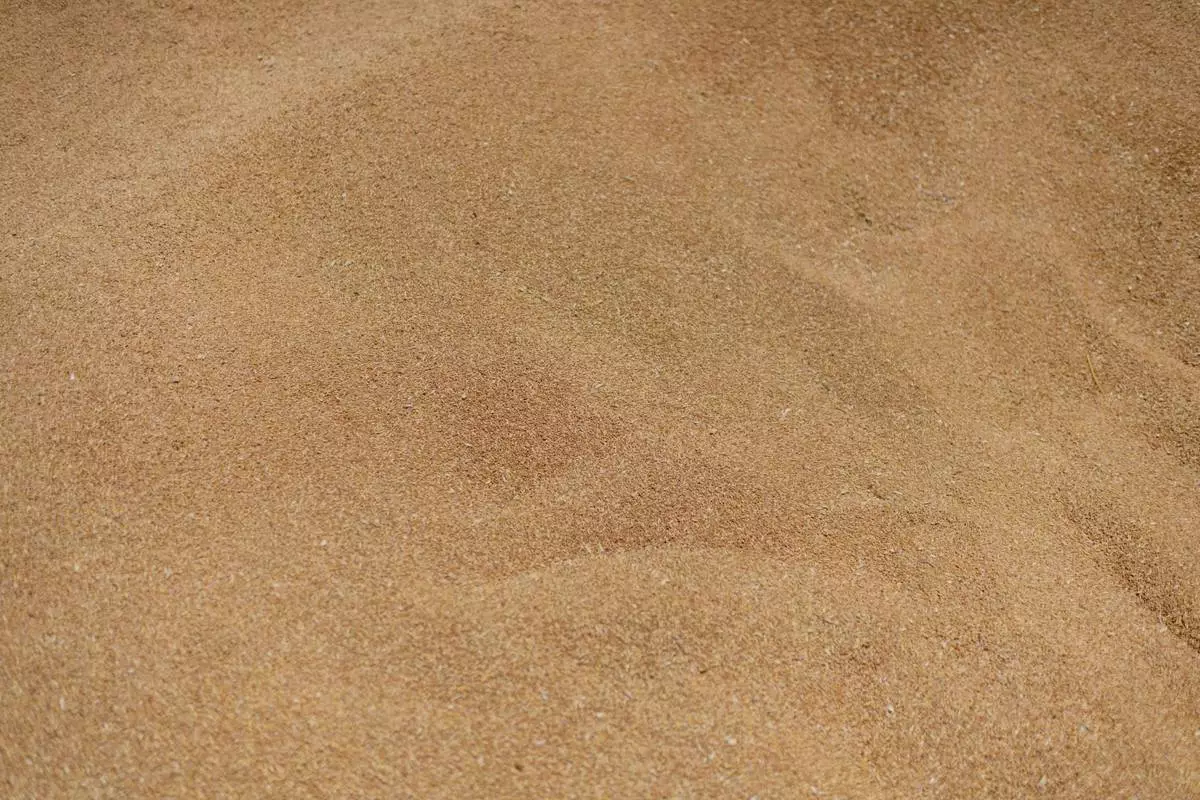
Harvested wheat from a farm on the outskirts of Kenitra, Morocco, Friday, June 21, 2024. (AP Photo)
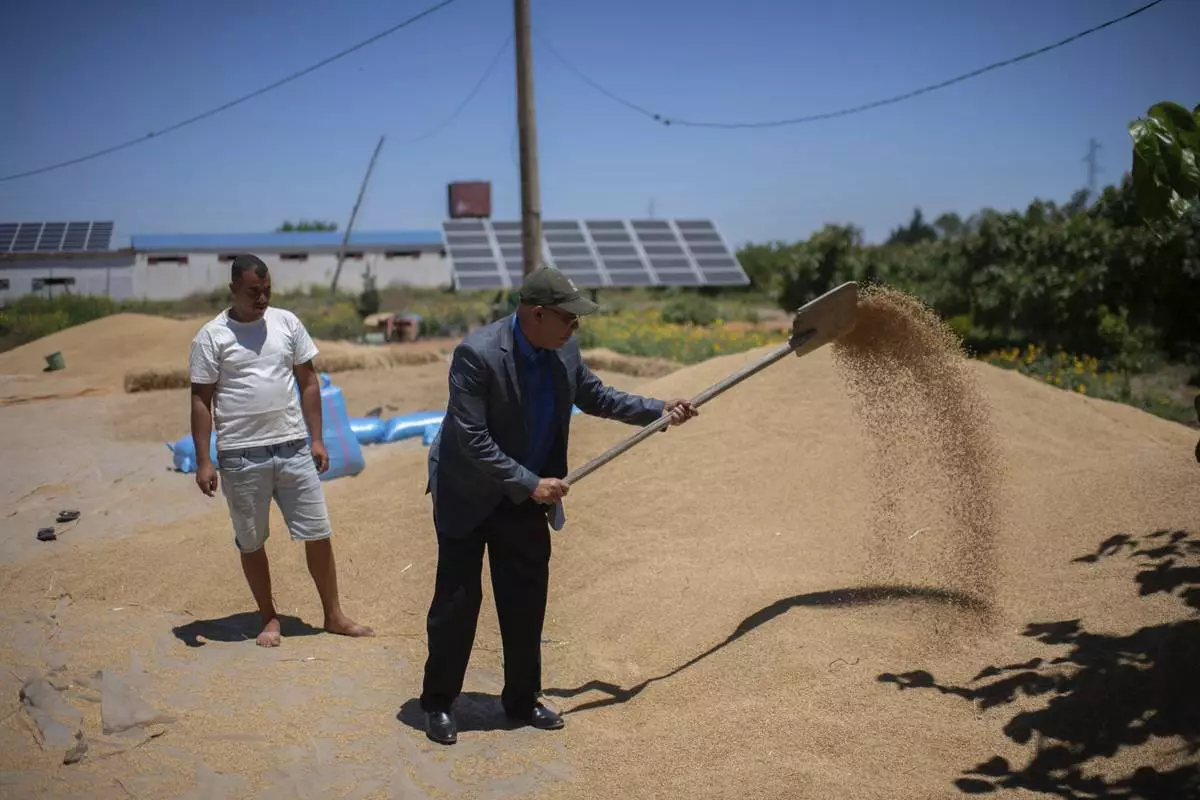
Abdelkrim Naaman, the chairman of the NGO Nalsya, right, advises a farmer on seeding, irrigation and drought mitigation, on a farm on the outskirts of Kenitra, Morocco, Friday, June 21, 2024. (AP Photo)
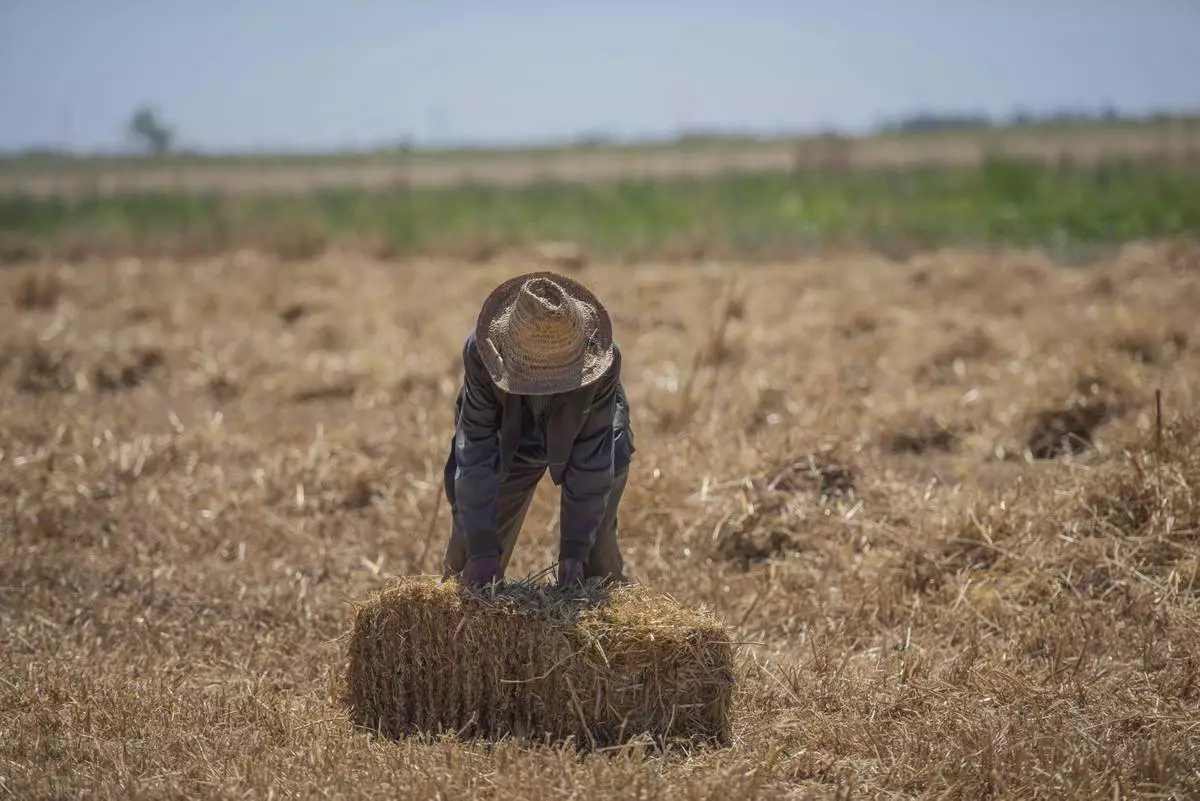
A farmer works in a wheat field on the outskirts of Kenitra, Morocco, Friday, June 21, 2024. (AP Photo)
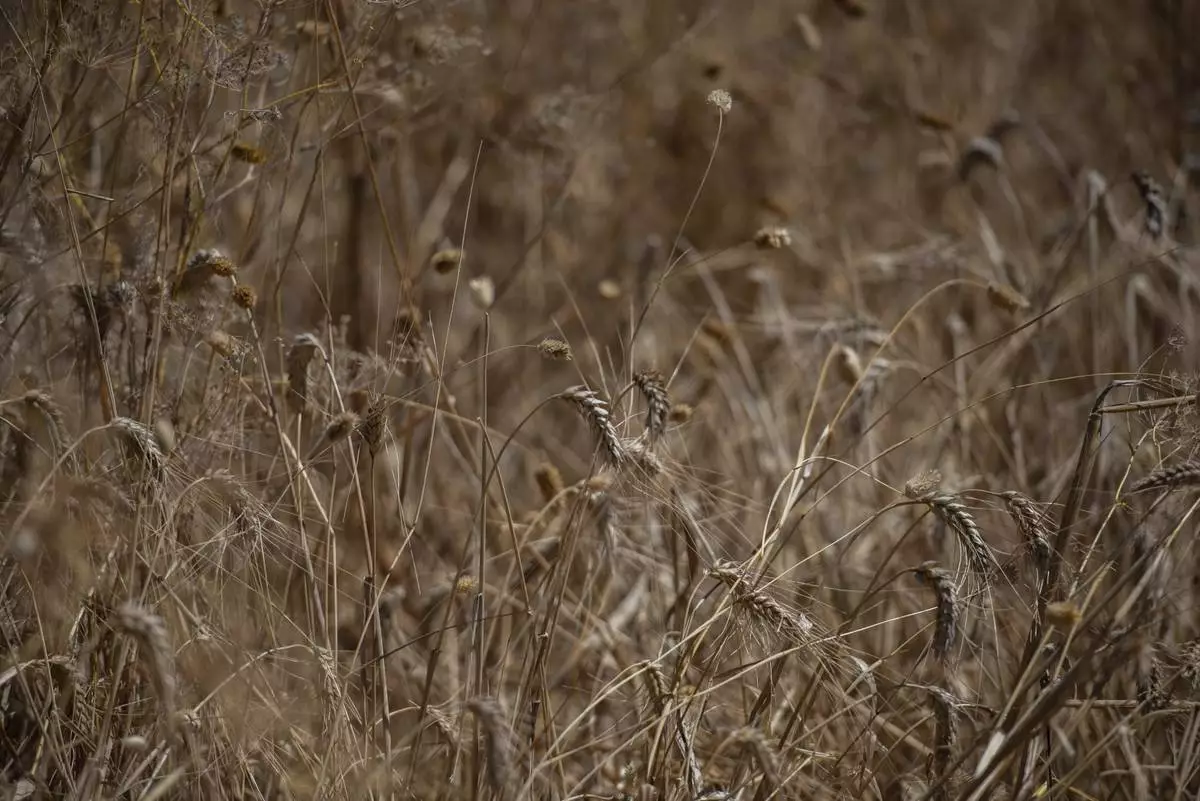
Wheat grows in a wheat farm on the outskirts of Kenitra, Morocco, Friday, June 21, 2024. (AP Photo)
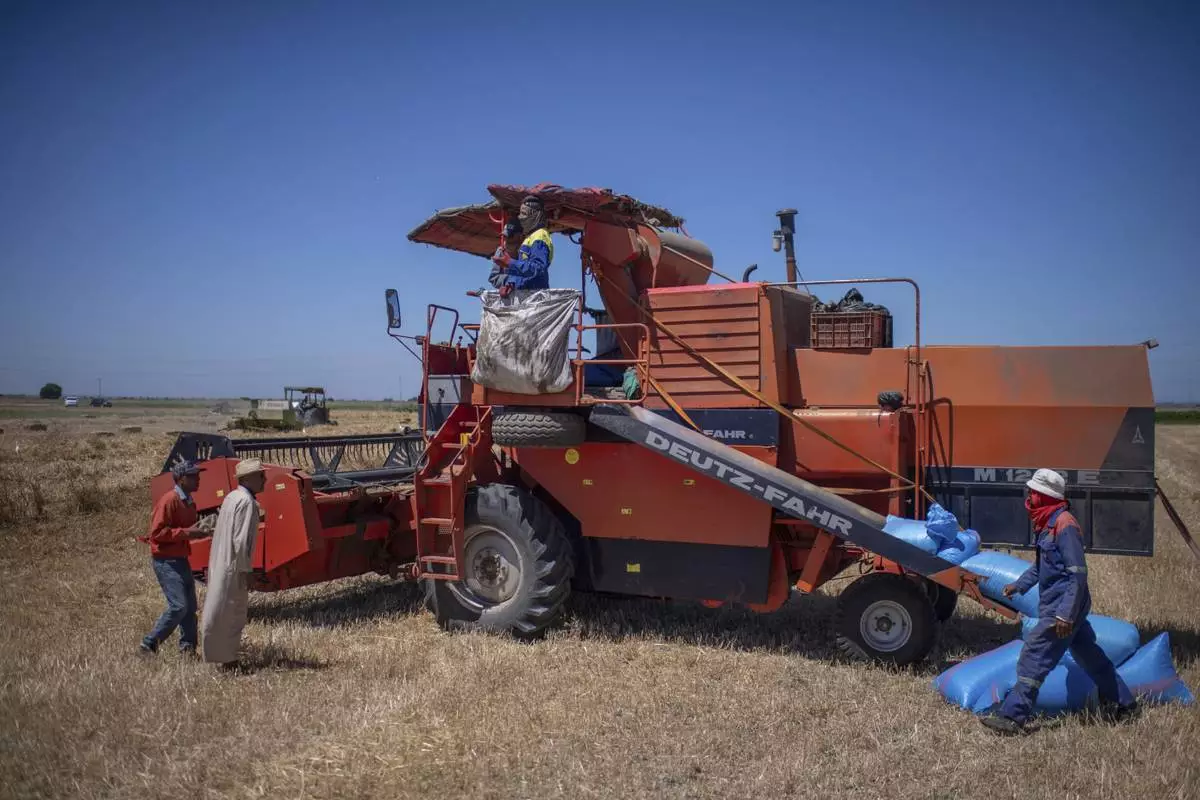
Farmers work on a wheat farm on the outskirts of Kenitra, Morocco, Friday, June 21, 2024. (AP Photo)
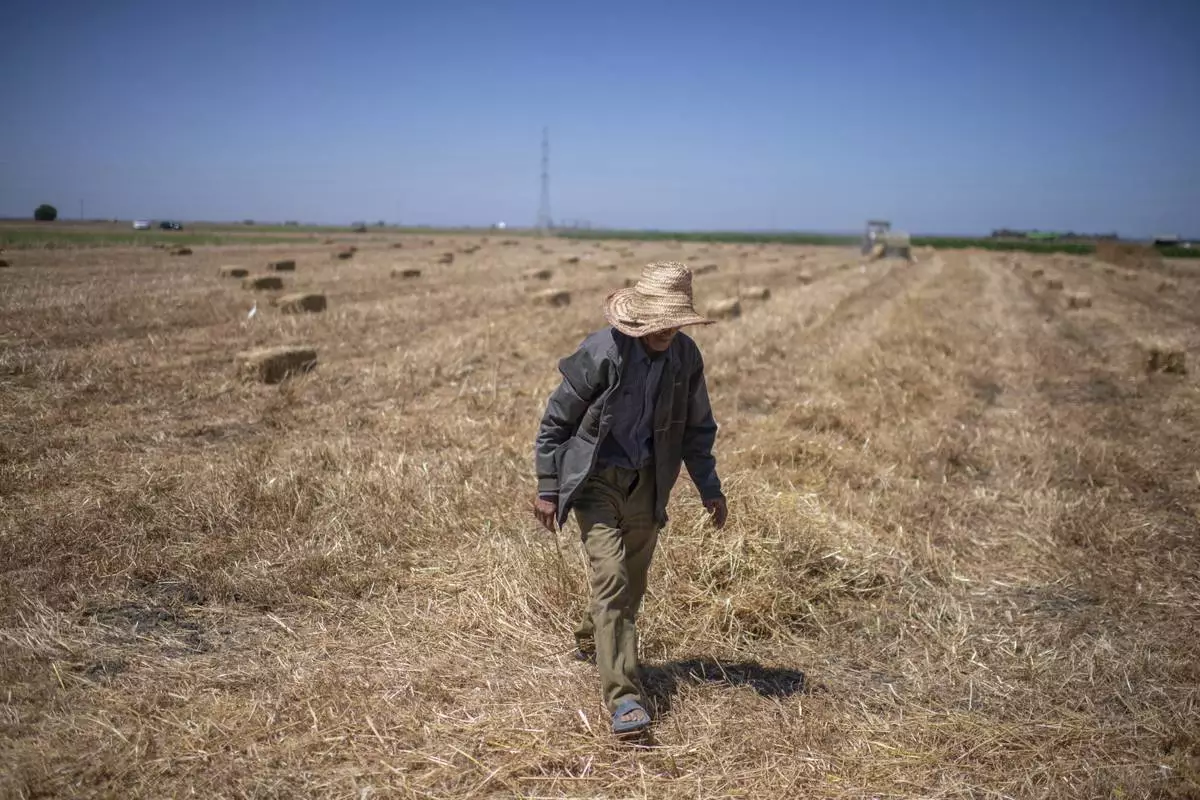
A farmer works in a wheat field on the outskirts of Kenitra, Morocco, Friday, June 21, 2024. Golden fields of wheat no longer produce the bounty they once did in Morocco. A six-year drought has imperiled the country's entire agriculture sector, including farmers who grow cereals and grains used to feed humans and animals. (AP Photo)
President Donald Trump moved to end a decades-old immigration policy known as birthright citizenship when he ordered the cancellation of the constitutional guarantee that U.S.-born children are citizens regardless of their parents’ status.
Trump's roughly 700-word executive order, issued late Monday, amounts to a fulfillment of something he's talked about during the presidential campaign. But whether it succeeds is far from certain as attorneys general in 18 states and two cities challenged the order in court on Tuesday, seeking to block the president.
Here's a closer look at birthright citizenship, Trump's executive order and reaction to it:
Birthright citizenship means anyone born in the U.S. is a citizen, regardless of their parents' immigration status. People, for instance, in the United States on a tourist or other visa or in the country illegally can become the parents of a citizen if their child is born here.
It's been in place for decades and enshrined in the 14th Amendment to the Constitution, supporters say. But Trump and allies dispute the reading of the amendment and say there need to be tougher standards on becoming a citizen.
The order questions that the 14th Amendment extends citizenship automatically to anyone born in the United States.
The 14th Amendment was born in the aftermath of the Civil War and ratified in 1868. It says: “All persons born or naturalized in the United States and subject to the jurisdiction thereof, are citizens of the United States and of the State wherein they reside.”
Trump's order excludes the following people from automatic citizenship: those whose mothers were not legally in the United States and whose fathers were not U.S. citizens or lawful permanent residents; people whose mothers were in the country legally but on a temporary basis and whose fathers were not citizens or legal permanent residents.
It goes on to bar federal agencies from recognizing the citizenship of people in those categories. It takes effect 30 days from Tuesday, on Feb. 19.
The 14th Amendment did not always guarantee birthright citizenship to all U.S.-born people. Congress did not authorize citizenship for all Native Americans born in the United States, for instance, until 1924.
In 1898 an important birthright citizenship case unfolded in the U.S. Supreme Court. The court held that Wong Kim Ark, who was born in San Francisco to Chinese immigrants, was a U.S. citizen because he was born in the country. After a trip abroad, he had faced denied reentry by the federal government on the grounds that he wasn't a citizen under the Chinese Exclusion Act.
But some advocates of immigration restrictions have argued that while the case clearly applied to children born to parents who are both legal immigrants, it’s less clear whether it applies to children born to parents without legal status.
Eighteen states, plus the District of Columbia and San Francisco sued in federal court to block Trump's order.
New Jersey Democratic Attorney General Matt Platkin said Tuesday the president cannot undo a right written into the Constitution with a stroke of his pen.
“Presidents have broad power but they are not kings,” Platkin said.
Not long after Trump signed the order, immigrant rights groups filed suit to stop it.
Chapters of the American Civil Liberties Union in New Hampshire, Maine and Massachusetts along with other immigrant rights advocates filed a suit in New Hampshire federal court.
The suit asks the court to find the order to be unconstitutional. It highlights the case of a woman identified as “Carmen," who is pregnant but is not a citizen. The lawsuit says she has lived in the United States for more than 15 years and has a pending visa application that could lead to permanent status. She has no other immigration status, and the father of her expected child has no immigration status either, the suit says.
“Stripping children of the ‘priceless treasure’ of citizenship is a grave injury,” the suit said. "It denies them the full membership in U.S. society to which they are entitled."
In addition to New Jersey and the two cities, California, Massachusetts, Colorado, Connecticut, Delaware, Hawaii, Maine, Maryland, Michigan, Minnesota, Nevada, New Mexico, New York, North Carolina, Rhode Island, Vermont, and Wisconsin joined the lawsuit to stop the order.

President-elect Donald Trump, from left, takes the oath of office as Barron Trump and Melania Trump watch at the 60th Presidential Inauguration in the Rotunda of the U.S. Capitol in Washington, Monday, Jan. 20, 2025. (Kevin Lamarque/Pool Photo via AP)
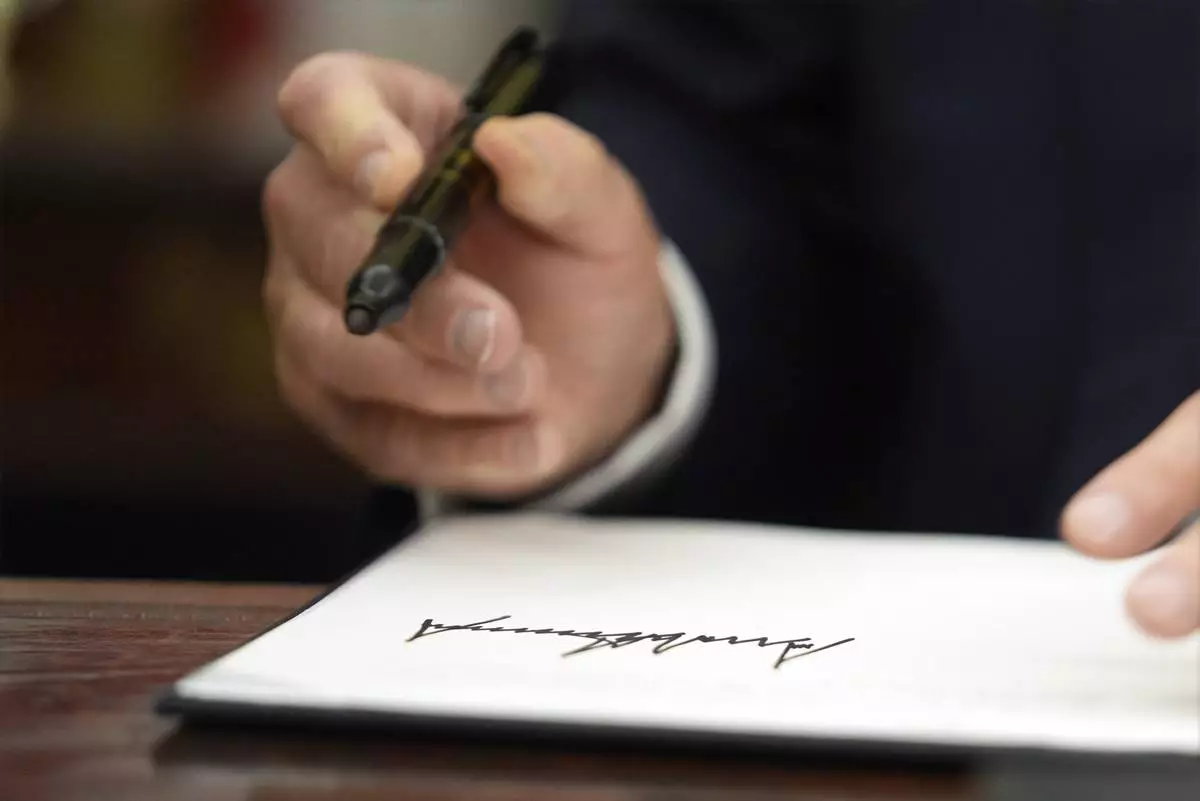
President Donald Trump signs executive orders in the Oval Office of the White House, Monday, Jan. 20, 2025, in Washington. (AP Photo/Evan Vucci)
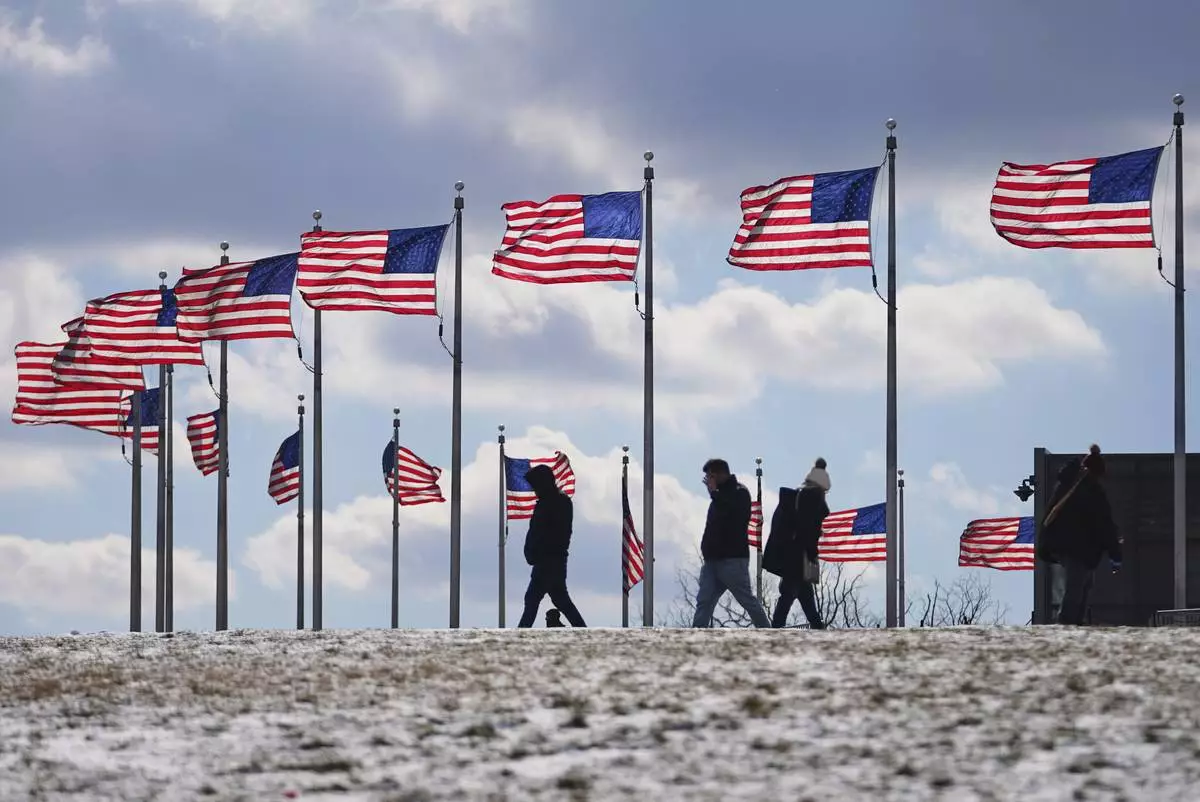
U.S. flags around the Washington Monument are at full staff during the 60th Presidential Inauguration, Monday, Jan. 20, 2025, in Washington. Flags are supposed to fly at half-staff through the end of January out of respect for former President Jimmy Carter, who died Dec. 29, 2024. (AP Photo/Julio Cortez)

A young man reacts to information on how to prepare for the upcoming changes to undocumented families living in the U.S., Sunday, Jan. 19, 2025, in Miami. (AP Photo/Marta Lavandier)
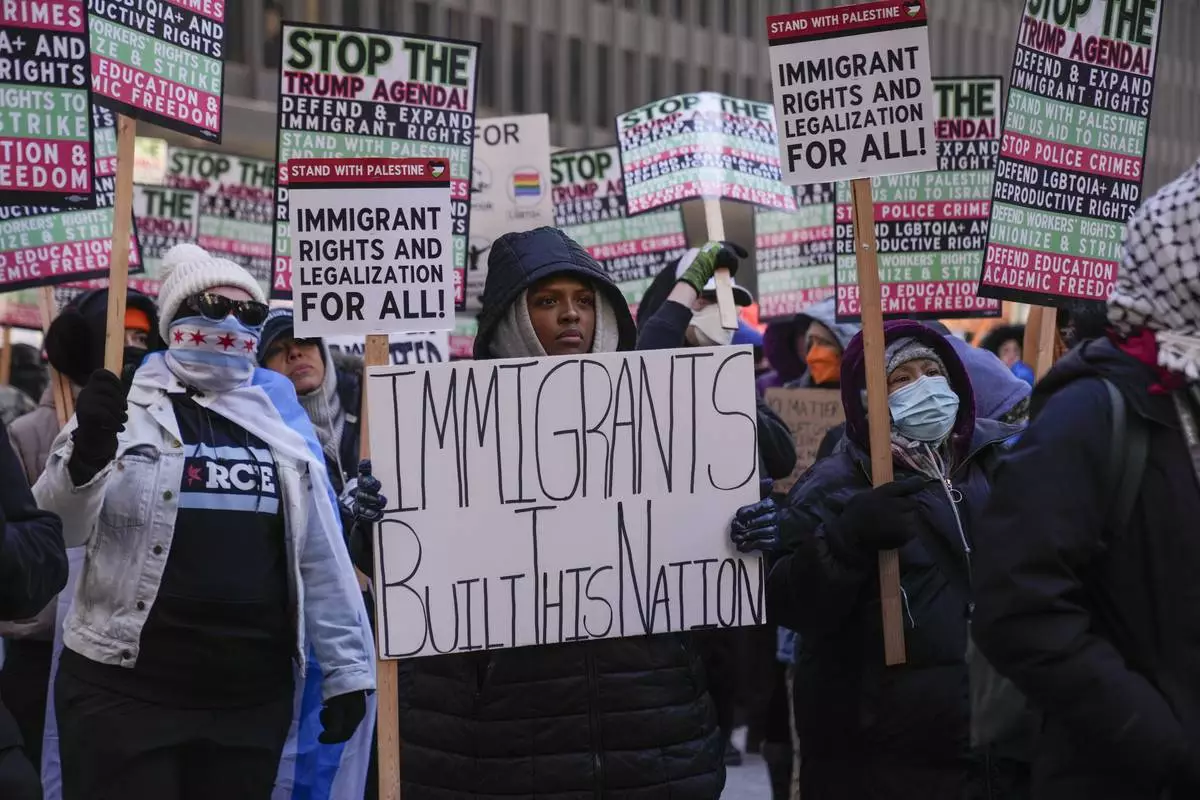
Sonia Rosa Sifore and other anti-Trump protesters gather in Federal Plaza to rally for a number of issues, including immigrant rights, the Israel-Hamas war, women's reproductive rights, racial equality and others, on the day of President Trump's Inauguration, Monday, Jan. 20, 2025, in Chicago. (AP Photo/Erin Hooley)
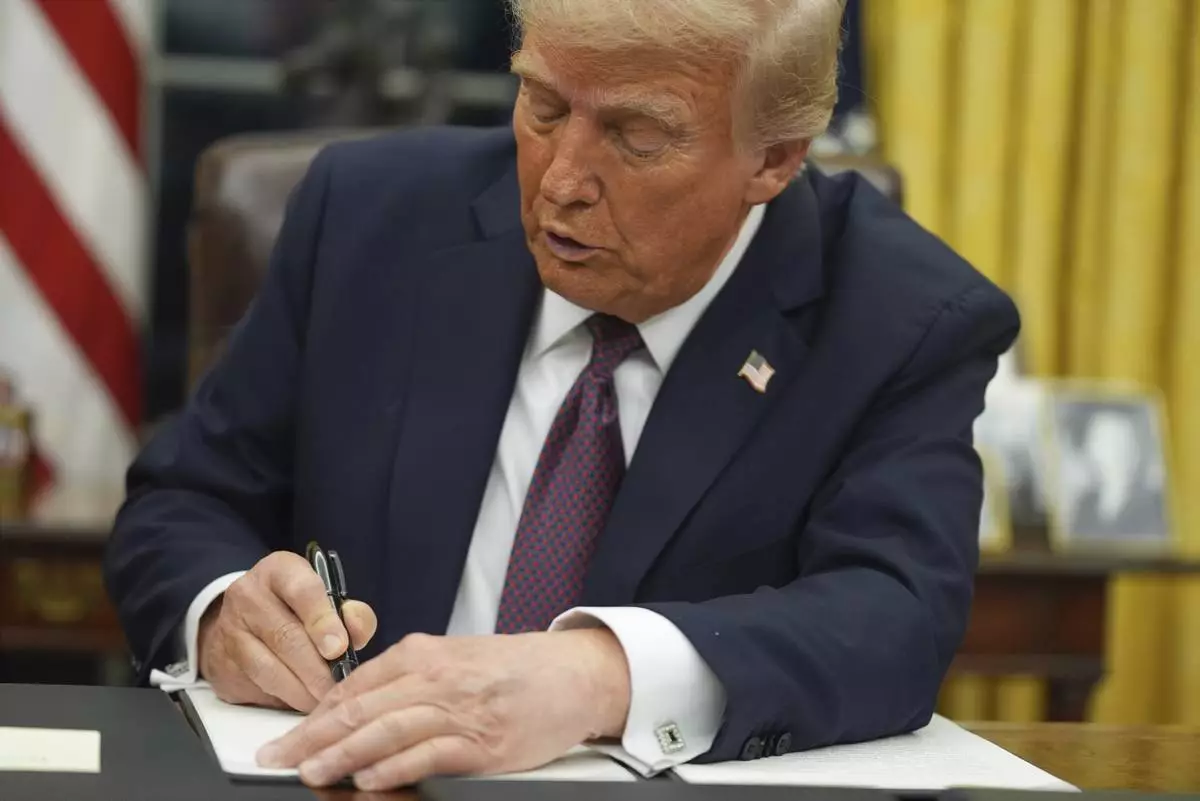
President Donald Trump signs an executive order on birthright citizenship in the Oval Office of the White House, Monday, Jan. 20, 2025, in Washington. (AP Photo/Evan Vucci)









